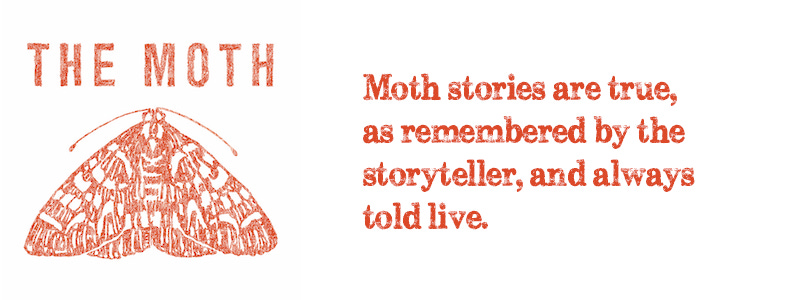Truth, the whole truth, and nothing but?
On the importance of your story telling the truth, to the best of your ability

We’ve all heard this question, or something similar, asked of witnesses in television or movie courtroom scenes. And for anyone who has served on a jury, you’ve heard it first hand. But what does this question really mean, is it a reasonable expectation, and if so, how does it pertain to the craft of telling personal stories?
While we tell personal stories to each other on a daily basis – most conversations can be thought of as a story – I’m referring here to stories that we plan to share in public; in print, on stage, radio shows, or podcasts, and considering the nature of truth when we’re telling these stories. Stories trapped in time, available for generations to come. Once spoken or published, most narrative bells cannot be unrung.
Although the practice of telling such stories has been around for millennia, the desire to hear them, and the opportunity to do so, has increased dramatically in recent years. As we’ve become more connected, and technologically savvy, we’ve developed a thirst for story that seems to be unquenchable.
Modern Day Truthtellers
Millions tune into broadcasts, view videos, or attend live events to hear stories about our shared human experience. Stories about who we are and how we got here. Stories about the struggles we’ve endured, and the universal hope for a better future.
In my coaching practice I’ve had the pleasure of working with hundreds of folks who wish to tell an impactful personal story. During the process of creating a storyline the topic of truth often comes up as many will say something like:
“It’s impossible to remember every detail. How truthful does my story need to be?”
The difficulty in remembering the truth is especially troublesome for experiences and conversations that happened a long time ago. And our memory is rather permeable.
The Moth Radio Hour
That’s when I’ll bring up the The Moth. I listen to a long list of podcasts each week for story inspiration, and The Moth remains at the top of the list. I never miss an episode. They host live storytelling events, and feature the best ones on The Moth Radio Hour.
With this in mind I encourage speakers to do their homework and verify every detail they can, especially statistics, research data and historical references. When it comes to the topic of personal experience, they should reach out to folks mentioned in their story and verify the facts, or at least hear their side of the story to ensure the message with your narrative represents a true version of history. Sometimes this is easier said than done, but in the end, you are the ultimate arbiter.
The reason is straightforward. If any aspect of a story is seen to be untrue, the entire narrative becomes suspect. One bad fact can, in this situation, spoil a story’s impact. When trust is broken between the storyteller and an audience it becomes difficult to repair. You must connect with your audiences from a place of honesty and integrity.
Should you ever have a desire to embellish your story, as a way to make it “stronger”, remember that you don’t need to make things up in order to make a point. If you feel it’s necessary, I would counter there’s something fundamentally lacking in your story to begin with, something that lying won’t/can’t solve.
Instead, rethink your premise and dig deeper into your narrative in order to find an experience or related information that properly supports the meaning of your story. Every story worth telling has truth at its center, but it may take some effort to find.
Everyone is entitled to their own opinion, but not their own facts.
~Daniel Patrick Moynihan
That said, there are other elements in personal storytelling – ideas, insights, beliefs and opinions. This part of your narrative is not based on empirical facts, but rather your view of the world, how you see things, what is true for you. These sections are subjective rather than objective.
The truth is, an audience wants to hear your opinion. It’s how they’ll connect to you, how they’ll come to understand the meaning of your story. But there should never be any confusion as to whether your words are presented as fact or opinion. By using an expression such as, “It seemed to me“, “The way I see it“, “The way I felt was“, you’ll signal the audience that you are shifting from fact to opinion. If done well, they will better understand the journey you’ve been on and the wisdom that you’re sharing.
You must be the guardian of truth within your story, as it becomes a reflection of you.
I hope that you enjoyed this post. If so, please share your wisdom and insights below. And don’t forget to subscribe. You can also find me on LinkedIn and Twitter, or even drop me a line with any thoughts or questions you may have about storytelling.




